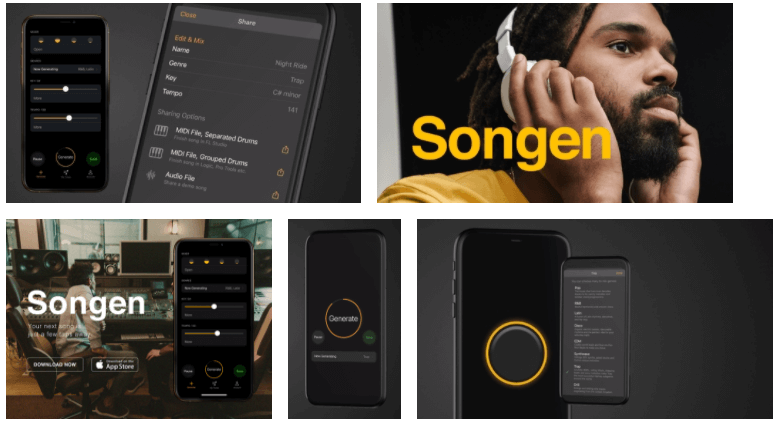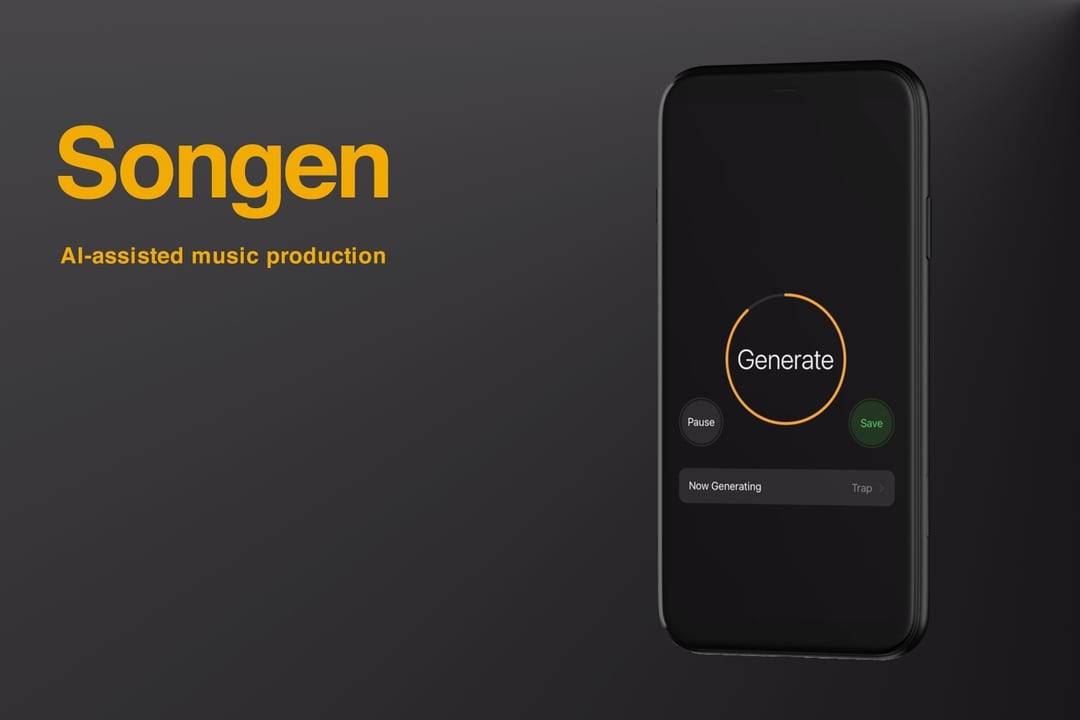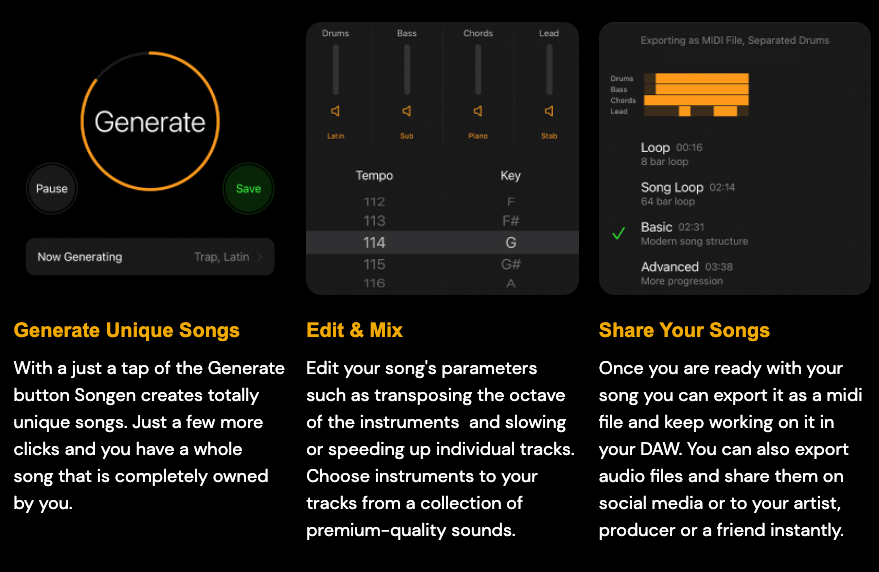
Songen is a new AI-powered app created in Helsinki, Finland by Vibin Oy. With a tap of your finger, you can generate endless ideas for songs. It includes several genres to get you started including: Synthwave, Pop, Trap, EDM, and more.
AI music generation can be hit-or-miss. I gave Songen a quick test run and was impressed. If you want to try it yourself, Songen is available as a free download here in the App Store. Songen uses the open-source AudioKit library to bring the music to life.
Exclusive Interview: Making SONGEN
We interviewed Ilmari Koskinen from Vibin Oy:
▶ What was your motivation for making the app?
Our motivation for the app cultivated from a couple of observations:
– Artists are becoming more and more genre-agnostic e.g. an album might have an EDM song, trap song and a disco song
– Music producers are under ever increasing pressure to continuously deliver new material on a daily basis
– New music genres are often a combination of some of already existing music genres
– Artificial intelligence has recently taken huge leaps and the topic is hot
Having first-hand experience of modern music producer’s day-to-day life, we wanted to build an app to make their life easier. Concretely we help music producers to explore musical ideas and provide unique ingredients for new songs.
The app introduces a new way to make music. Music producers and artists can outsource some of the ideation to the app and instead become curators of song ideas. To acid-test the concept we generated a single music loop and asked two producers to make songs out of it. It surprised us how quickly both finished their songs. Furthermore, both songs were totally different – they saw the same piece from very different angles.
During the process of making the app we decided to include features to further shorten and automate the process of music production. Users can sketch song structures within the app and directly port both midi and audio. This way music producers and artists can jump right into the interesting action such as choosing their signature plugins and sounds for the ready-made midi tracks.
▶ Advice for other aspiring music app developers?
Proper user testing is the last thing we would skip. Cool features are worthless if users are puzzled and scared to try out anything in the app.
Don’t be afraid to rewrite big parts of the app. Putting in efforts to keep the code clean and tidy really pays off and enables quick prototyping and major changes. Clean codebase also enables quick response to user feedback once the app is released.
Our advice for any music app developer is to actively involve people representing the actual users in the development. If you want a hassle-free and up-to-date development experience, AudioKit is definitely a great choice.
▶ What did you learn from making the app?
One of the biggest lessons learned was related to the user experience. As a developer it’s impossible to know the pitfalls of the user experience and flow without a proper user testing. Making an app requires equal service design as any other service format.
It was an interesting challenge to mix the sounds so that everything is balanced both on device speakers, headphones and hifi speakers. Luckily AudioKit offers an extensive collection of audio effects and processors to make code-driven routing and mixing straightforward.
▶ What was it like using AudioKit?
AudioKit is playing a crucial role in our app. Architecture-wise it’s the frontend of the music generator. The clear API and documentation really helped us to maintain focus on the development of the core algorithms responsible for generating the music.
AudioKit’s API is relatively close to the mental model of modern DAWs. This really helped us to establish a tight collaboration between music producers and developers. Active community and core contributors have done marvelous work addressing all issues raised during the process. A major version upgrade of AudioKit right before the release of the app didn’t cause any unnecessary trouble and the development experience was overall great.
AudioKit has been successful in keeping the underlying Apple APIs blocked from major abstraction leaks. A manifestation of all this is that the library never forced us to make smelly code to achieve what we wanted.
Great job Ilmari Koskinen and team!
Learn more about Songen: Songen.app




